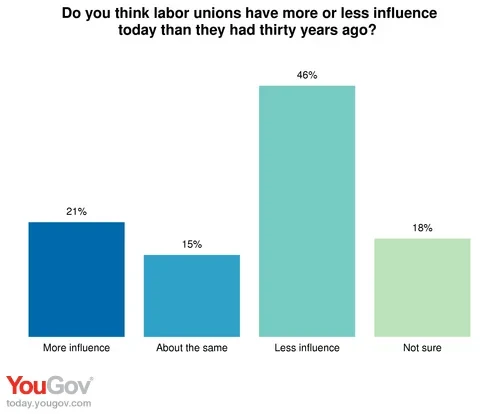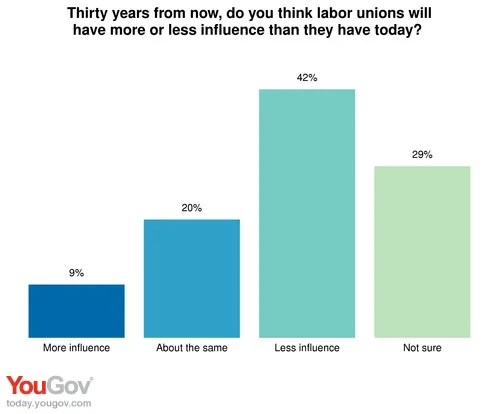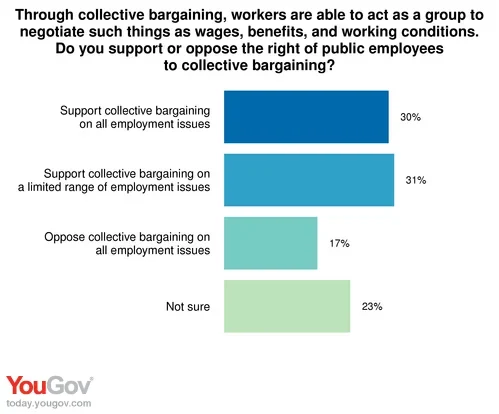(Week of 6/2/2012) Recall elections in Wisconsin for Governor, Lieutenant Governor and four state Senate seats in a deadlocked state senate (16 D – 16 R – 1 vacancy) all sprung from an effort by Republican Governor Scott to restrict collective bargaining rights for public employees. At best, Democrats may have won one meaningless state Senate race and control of a Senate that won't meet and cannot act before the next elections. It’s clear that Americans see the influence of unions shrinking. In the latest Economist/YouGov Poll, 46% say unions have less influence today than they did 30 years ago and 42% think they’ll have even less influence in the future.


Democrats in particular are likely to see union’s influence as having waned; Republicans are especially likely to say union influence will decrease in the future.
Americans are divided on the extent to which public employee unions should have collective bargaining rights. 30% would give public employees collective bargaining rights on all issues, and another 31% would grant them some collective bargaining rights. Just 17% oppose collective bargaining completely.

34% of Republicans and 36% of conservatives oppose any collective bargaining for public employees.
Unions in general get mixed reviews from the public: 38% approve of labor unions, 32% do not. This is a partisan belief: 59% of Democrats approve of labor unions, while exactly the same percentage of Republicans disapprove.
Economist/YouGov poll archives can be found here
Photo source: Press Association







